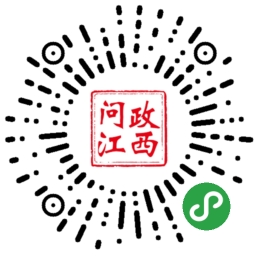Chinese internet sector's embrace of open source fuels cross-border co-op

Illustration: Liu Rui/GT
With the 2025 World Internet Conference Wuzhen Summit set to take place in East China's Zhejiang Province from November 6 to 9, the Global Internet Competition of "Straight to Wuzhen," one of the key components of the summit, has drawn significant attention.
This year's competition introduces a new Open Source Projects track, divided into two sections: the Open Source Model Application Competition and the Open Source Challenge Competition, according to the organizer's website.
The new competition track demonstrates the Chinese internet industry's proactive embrace of open source. This attitude not only paves a broader path for innovation but also fuels cross-border collaboration, driving the world tech ecosystem toward an open, inclusive transformation.
The Chinese internet industry's turn toward open source is no accident. It stems from a profound synergy between the nation's unique strengths in digital innovation and the inherent characteristics of open-source models. In the global digital economy, one of China's most prominent and dynamic strengths is its vast market and robust innovation in application. Success stories in mobile payments, social e-commerce, livestreaming videos, and the sharing economy demonstrate this prowess.
In this ecosystem, open source can act as a powerful accelerator for innovative energy. By significantly lowering technical barriers, it enables legions of small and medium-sized enterprises, alongside individual developers, to access and build upon cutting-edge technologies, from artificial intelligence (AI) models to distributed computing frameworks. This fusion of accessible technology with deep, localized market understanding fosters a more diverse and vibrant service ecosystem.
As a result, China's massive developer community is transitioning to becoming active "co-builders" within the global tech landscape, creating a virtuous cycle where scale and innovation fuel one another. This is the practical foundation for open source's vitality in China.
Moreover, the value of open-source models extends far beyond leveraging application advantages. It also lies in constructing an ecosystem for mass, collective innovation. In cutting-edge fields such as AI, technological complexity has long exceeded the capacity of individual enterprises or laboratories. Open source breaks the monopoly of a handful of entities by making underlying code, models, and tools accessible to all.
This means that tens of thousands of researchers, engineers, and developers worldwide can examine, test, modify, and optimize technologies from different perspectives and solve diverse problems. China boasts the world's largest workforce of engineers and researchers, and open source has effectively unlocked their innovative potential, shifting from "closed-door research and development" by a few tech giants to "collaborative innovation" involving tens of thousands.
More importantly, amid intensifying global digital competition and evolving geopolitical dynamics, open source has gone from being a mere technical choice to become a strategic factor crucial to industrial competitiveness. As an effective means to break technological monopolies and ensure independent development, open source is gaining new strategic significance. By building an open-source ecosystem, China has not only strengthened the resilience of its technological system but also pushed the global tech ecosystem toward greater openness and inclusiveness.
The impact of this approach has transcended national borders, reshaping the landscape of world technological cooperation. China's embrace of open source creates new development pathways for its companies while driving demand for deeper international collaboration, steering the global digital ecosystem toward greater openness and equity.
Unlike the building of technological barriers by some in the West, China's open-source approach demonstrates that innovation needs not be a zero-sum game. Building platforms that connect international expertise means that technological progress can benefit a far wider range of participants. Ultimately, this is the sustainable path for digital civilization.
As open source becomes integral to China's scientific and technological development, the innovative vitality it unleashes, the industrial security it safeguards, and the inclusive values it embodies will undoubtedly inject lasting impetus into the global digital economy.
来源:人民网
编辑:熊睿
审核:刘毅 甘晶莹
监制:郑颖





























